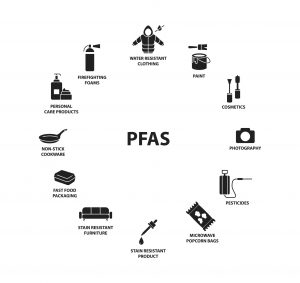 An oft-repeated maxim in self-help literature is: “Do not let your circumstances define who you are.” In a similar vein, policyholders should proactively manage situations in which known circumstances may potentially give rise to an eventual claim.
An oft-repeated maxim in self-help literature is: “Do not let your circumstances define who you are.” In a similar vein, policyholders should proactively manage situations in which known circumstances may potentially give rise to an eventual claim.
Suppose a company perceives the potential risk of litigation or a government investigation. This may not necessarily be the result of any known wrongful conduct—such risk may just be inherent in the company’s business model or within the company’s industry. When the company’s D&O insurance policy (or employment liability or professional liability, as the case may be) is on the verge of expiring, the company may be faced with the decision whether to report such circumstances to the insurer under the policy’s “notice of circumstances” (NOC) provision, which permits the policyholder to provide notice of facts or events that may give rise to claims in the future. If such notice is given within the specified time, the insurer will treat any subsequent claims arising out of the noticed circumstances as claims first made within the policy period, even if the claims are brought much later.
 Policyholder Pulse
Policyholder Pulse



 Early in 2021, we wrote about potential insurance implications that could arise from the then-new
Early in 2021, we wrote about potential insurance implications that could arise from the then-new  In August, we provided an
In August, we provided an  A feature of most corporate liability insurance programs is the tower system of coverage: a primary policy with several overlying excess policies stacked atop one another collectively providing coverage up to a desired (or available) limit of liability. Depending on the size and liability exposures of a policyholder, a tower can consist of dozens of policies providing limits totaling hundreds of millions of dollars. Adding to this complexity, excess policies often share layers of coverage in quota share arrangements, sometimes subscribing to the same policy but more often issuing separate policies for a stated percentage of the quota share whole. To avoid as much as possible an impenetrable web of conflicting coverage terms, excess policies often “follow form” to the underlying coverage (usually to the primary policy) providing the insurer certainty and providing the policyholder a consistent tower of coverage. It is not always possible, though, to obtain clarity and certainty in tower placements. Insurance companies issuing excess coverage may not wish to agree to all the terms included in the underlying policies, and so may offer additional or differing terms, creating inconsistencies in an otherwise monolithic tower. For example, a primary insurer may refuse to cover punitive damages whereas an excess insurer may agree to do so, or vice versa.
A feature of most corporate liability insurance programs is the tower system of coverage: a primary policy with several overlying excess policies stacked atop one another collectively providing coverage up to a desired (or available) limit of liability. Depending on the size and liability exposures of a policyholder, a tower can consist of dozens of policies providing limits totaling hundreds of millions of dollars. Adding to this complexity, excess policies often share layers of coverage in quota share arrangements, sometimes subscribing to the same policy but more often issuing separate policies for a stated percentage of the quota share whole. To avoid as much as possible an impenetrable web of conflicting coverage terms, excess policies often “follow form” to the underlying coverage (usually to the primary policy) providing the insurer certainty and providing the policyholder a consistent tower of coverage. It is not always possible, though, to obtain clarity and certainty in tower placements. Insurance companies issuing excess coverage may not wish to agree to all the terms included in the underlying policies, and so may offer additional or differing terms, creating inconsistencies in an otherwise monolithic tower. For example, a primary insurer may refuse to cover punitive damages whereas an excess insurer may agree to do so, or vice versa. In recent weeks, two insurers with significant legacies of occurrence-based general liability coverage took important steps to liquidate their estates.
In recent weeks, two insurers with significant legacies of occurrence-based general liability coverage took important steps to liquidate their estates. As coverage counsel, we witness firsthand the precarious positions policyholders are often left in due to the actions (or inactions) of their insurance carriers. A prime example of such a catch-22 scenario is when an insurer refuses to consent to a settlement offer while defending under a reservation of rights.
As coverage counsel, we witness firsthand the precarious positions policyholders are often left in due to the actions (or inactions) of their insurance carriers. A prime example of such a catch-22 scenario is when an insurer refuses to consent to a settlement offer while defending under a reservation of rights. Times of crisis can bring out the best in people. Unfortunately, times like this can also be an opportunity for exploitation of inexpensive, and potentially forced, labor. As America reopens its economy, it is likely that we will begin to see a surge in many industries. The resulting demand for labor, coupled with unprecedented unemployment and related desperation not only in America, but worldwide, could lead unscrupulous individuals and companies to exploit American and foreign workers. We saw this with previous disasters, such as Hurricane Katrina, where foreign laborers were
Times of crisis can bring out the best in people. Unfortunately, times like this can also be an opportunity for exploitation of inexpensive, and potentially forced, labor. As America reopens its economy, it is likely that we will begin to see a surge in many industries. The resulting demand for labor, coupled with unprecedented unemployment and related desperation not only in America, but worldwide, could lead unscrupulous individuals and companies to exploit American and foreign workers. We saw this with previous disasters, such as Hurricane Katrina, where foreign laborers were  A couple months into the widespread shift to remote work for many employees on a temporary basis, an increasing number of companies are considering or already implementing a permanent shift to remote work for most or all of their employees. Unsurprisingly, this shift is rapidly occurring in the technology industry. For example, Twitter’s CEO announced this week that its employees will be allowed to
A couple months into the widespread shift to remote work for many employees on a temporary basis, an increasing number of companies are considering or already implementing a permanent shift to remote work for most or all of their employees. Unsurprisingly, this shift is rapidly occurring in the technology industry. For example, Twitter’s CEO announced this week that its employees will be allowed to  In the uncertain times ushered in by the COVID-19 pandemic, observers of the insurance law landscape can find footing in an old, familiar story: a single insured left deeply dissatisfied by her insurance provider’s coverage for an accident lawsuit against her. But in
In the uncertain times ushered in by the COVID-19 pandemic, observers of the insurance law landscape can find footing in an old, familiar story: a single insured left deeply dissatisfied by her insurance provider’s coverage for an accident lawsuit against her. But in  When an insurer pursues a judicial determination on its duty to defend and agrees to defend its insured retroactively only five months after its insured initially requested a defense, has it breached its duty to defend? In most jurisdictions, the answer would be “yes.” In California, for example, an insurer must afford an immediate and entire defense in response to a tendered claim that is potentially covered under the
When an insurer pursues a judicial determination on its duty to defend and agrees to defend its insured retroactively only five months after its insured initially requested a defense, has it breached its duty to defend? In most jurisdictions, the answer would be “yes.” In California, for example, an insurer must afford an immediate and entire defense in response to a tendered claim that is potentially covered under the